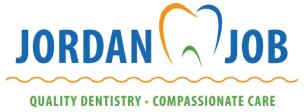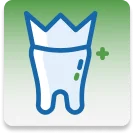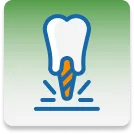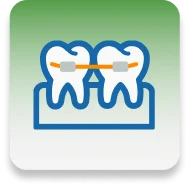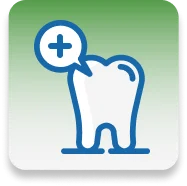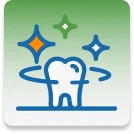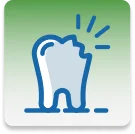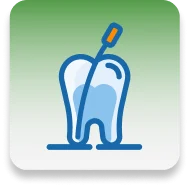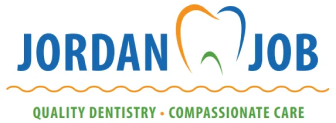Maintaining healthy teeth isn’t just about having a bright smile; it’s about preserving oral health. Good dental habits can prevent cavities, gum disease, and other health problems. While professional dental care is crucial, much of the work with daily routines and lifestyle choices happens at home.
Every day, you have the opportunity to make decisions that impact the health of your teeth and gums. Brushing, flossing, and proper eating habits are the foundational steps for keeping your mouth clean and healthy. Focusing on these basics can significantly reduce your risk of dental issues and improve your oral hygiene.
In addition to daily practices, advanced care techniques and preventive measures can further protect your smile. These include using mouthwash, cleaning dental appliances, and understanding how diet and lifestyle affect your teeth. This comprehensive approach to at-home dental care ensures you enjoy strong, healthy teeth for years.
Daily Oral Hygiene Practices
Importance of Brushing and Flossing
Brushing and flossing are the cornerstones of oral hygiene. Brushing removes plaque, a sticky film of bacteria that forms on teeth and can lead to cavities and gum disease. Flossing cleans your teeth where a toothbrush can’t reach, removing particles and plaque that cause decay and bad breath. Both practices are essential for maintaining healthy teeth and gums.
How to Choose the Right Toothbrush and Toothpaste
Choosing the right tools can greatly impact your oral hygiene routine. When selecting a toothbrush, choose one with soft bristles to avoid damaging your gums. Electric toothbrushes can also be more effective in removing plaque. For toothpaste, look for ones that contain fluoride, which helps to strengthen tooth enamel and prevent cavities. There are also specialized toothpaste for sensitive teeth (sensodyne), whitening, and tartar control to meet your specific needs. Be aware that whitening toothpastes contain abrasives that help remove the extrinsic or outside stains to your teeth, however, they can be potentially harmful to your gums if you brush aggressively.
Techniques for Effective Brushing and Flossing
Effective brushing involves more than just moving the brush around in your mouth. Hold the toothbrush at a 45-degree angle to your gums and use short, gentle strokes to clean your teeth’ outer, inner, and chewing surfaces. Brush for at least two minutes twice a day. Use about 18 inches of floss for flossing, winding most of it around your middle fingers. Gently guide the floss between your teeth, making a C-shape around each tooth and moving it up and down to remove plaque and debris. Be sure to use a clean section of floss for each tooth.
Healthy Eating Habits
Foods That Promote Dental Health
What you eat plays a significant role in your oral health. Foods rich in calcium and phosphorus, such as dairy products, nuts, and lean meats, help to strengthen your teeth. Crunchy fruits and vegetables like apples, carrots, and celery stimulate saliva production, which helps to neutralize acids and wash away food particles. Leafy greens high in vitamins and minerals, like spinach and kale, also promote healthy teeth and gums. Apples are also good for gum health as they can also harden your gum tissues from the texture of the apple’s skin.
Foods and Beverages to Avoid
Certain foods and beverages can harm your teeth. Sugary snacks and drinks, like candies, sodas, and pastries, create an environment where harmful bacteria thrive, leading to cavities. Acidic foods and drinks, such as citrus fruits and juices, can erode tooth enamel over time. Sticky foods, like gummy candies, can get lodged in your teeth. It’s important to limit these foods to keep your teeth healthy. Harder foods and chewing ice can harm your teeth and cause your teeth to chip or break.
The Impact of Sugar and Acidic Foods on Teeth
Sugar and acidic foods pose a direct threat to your dental health. When you consume sugary foods, the bacteria in your mouth break down the sugar and produce acids that attack your tooth enamel. This process can lead to cavities and tooth decay. Acidic foods and drinks can erode the enamel, making teeth susceptible to decay and sensitivity. To mitigate the damage, rinse your mouth with water or a fluoride rinse (Like ACT) after consuming these foods.
Advanced At-Home Care
Benefits of Using Mouthwash
Using mouthwash can be a beneficial addition to your dental care routine. It helps reduce plaque and can reach areas that brushing and flossing might miss. It helps freshen your breath and can also reduce the risk of gum disease. Some mouthwashes contain fluoride, which helps strengthen tooth enamel and prevent decay. Using mouthwash as directed can significantly enhance your oral hygiene.
How to Properly Clean Dental Appliances Like Retainers and Dentures
Properly cleaning dental appliances like retainers and dentures is crucial for maintaining their effectiveness and ensuring good oral health. For retainers, brush them with a soft toothbrush and non-abrasive toothpaste. You can also soak them in a denture cleaner. Rinse thoroughly before putting them back in your mouth. For dentures, brush them daily with a brush and cleanser to remove food particles and plaque. Soak them in a denture-cleaning solution overnight to keep them fresh. You can also use soap and water with your toothbrush and rinse the appliance off. Always handle your dental appliances with care to avoid damage.
Importance of Regular At-Home Dental Checks
Regular at-home dental checks can help you catch issues early before they become significant problems. Check for signs of gum disease, such as redness, swelling, or bleeding gums. Look for any changes in your teeth or gums, like discoloration or sores that don’t heal. Use a small dental mirror to examine all areas of your mouth. If you notice anything unusual, schedule an appointment with your dentist for a professional evaluation.
Preventive Measures and Lifestyle Choices
The Role of Smoking and Alcohol in Dental Health
Smoking and alcohol can significantly impact your dental health. Smoking increases the risk of gum disease, tooth decay, and oral cancer. It also stains your teeth and can lead to bad breath. Alcohol, particularly in large amounts, can dry out your mouth, reducing saliva production, essential for maintaining oral health. Alcohol can also erode tooth enamel and increase the risk of cavities. Limiting these habits can significantly improve your dental health.
Tips for Avoiding Tooth Injuries During Sports and Activities
Protecting your teeth during sports and other physical activities is vital to prevent injuries. Wear a mouthguard for contact sports like football, basketball, and boxing. Mouthguards can protect your teeth from fractures and your lips from cuts. Avoid chewing on complex objects like ice or popcorn kernels, which can crack your teeth. When engaging in activities where falls are possible, such as skateboarding or biking, always wear a helmet to protect your head and mouth.
How to Recognize Early Signs of Dental Problems
Recognizing early signs of dental problems can help you seek treatment before they become serious. Look out for tooth sensitivity to hot or cold foods, indicating enamel erosion or cavities. Persistent bad breath might indicate gum disease or other oral infections. Bleeding gums when you brush or floss can also indicate gum disease. Pain or discomfort in your teeth and jaw should never be ignored. If you notice these signs, visit your dentist for a check-up.
Conclusion
Maintaining healthy teeth at home is achievable with consistent daily care, smart dietary choices, advanced at-home practices, and mindful lifestyle considerations. You can significantly enhance your oral health by brushing and flossing correctly, choosing the right foods, and avoiding harmful habits. Adding mouthwash to your routine, properly cleaning dental appliances, and performing regular at-home checks further support your efforts. Protective measures should be taken during physical activities to ensure the longevity of your teeth. Regular professional check-ups are also essential in catching potential problems early.
At Jordan M. Job DDS, we’re here to help you keep your smile healthy and bright. If you have any concerns or need professional advice, schedule an appointment with our dentist in Parma, Ohio, today. Your oral health is our priority, and we look forward to assisting you in achieving the best dental care at home.
